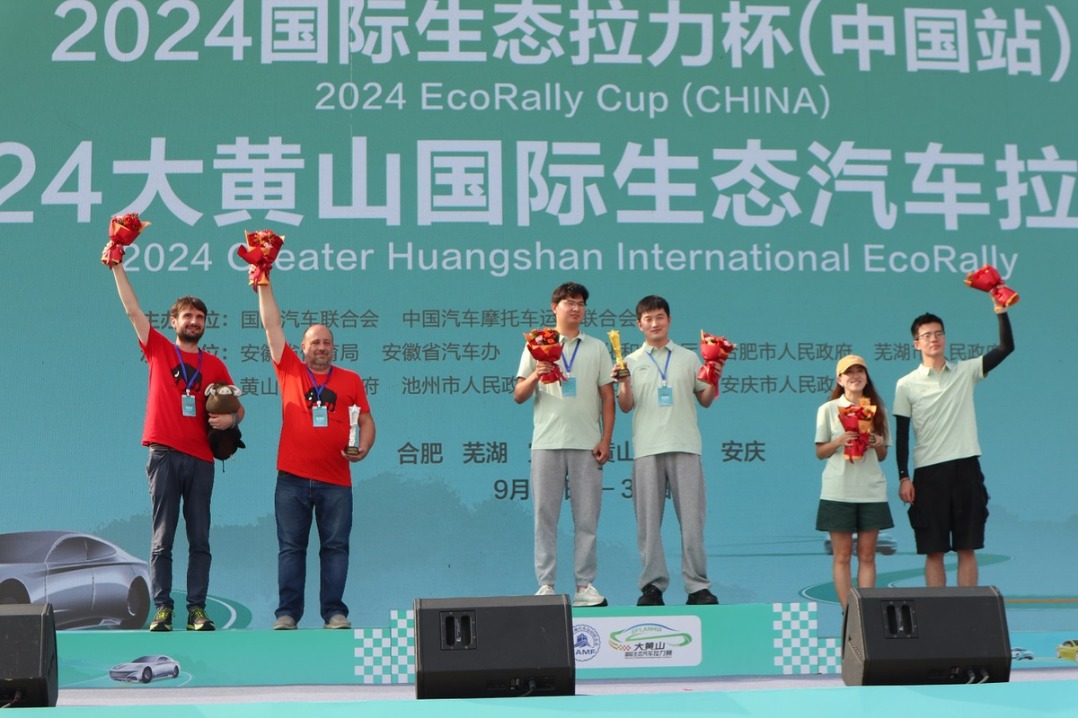Queen of Sichuan Opera breathes fresh life into traditional art


In China, Shen Tiemei is the face and soul of Sichuan Opera. The soprano has dedicated her entire life to this 300-year-old art form and has helped introduce it to more audiences at home and abroad through her innovative approach.
"My veins run with the blood of Sichuan Opera," she said. "It's my destiny and my duty to make this art form flourish."
As a three-time winner of the Chinese Drama Plum Blossom Award-the highest national performing arts award-the 55-year-old has found her own way in this artistic field.
She is the first Sichuan Opera singer to partner with foreign symphony orchestras, the first to add bel canto techniques to traditional Chinese singing and also the first to introduce Sichuan Opera to Western audiences.
In July 2012, Shen performed Phoenix Pavilion-Feng Yi Ting in Chinese-at the Lincoln Center Festival in New York.
"And the work done by Shen Tiemei, the distinguished and striking Sichuan soprano, who portrayed Diao during the opera's premiere at the Spoleto Festival USA in June, and again here, is nothing if not heroic," a review in The New York Times read, commenting on Shen's performance.
Thanks to strong support from the government and the continuous efforts of Chinese artists, now "is the best time for Sichuan Opera", according to Shen, who is also vice-president of the China Theater Association and director of the Chongqing Sichuan Opera Theater.
Addressing the 19th CPC National Congress in 2017, Xi Jinping, general secretary of the Communist Party of China Central Committee, said that cultural confidence is a fundamental and profound force that sustains the development of a country and a nation. "We must promote the creative evolution and development of fine traditional Chinese culture... We should cherish our cultural roots, draw on other cultures and be forward-thinking," he said.
Born into a theater family in Chongqing in 1965, Shen showed talent at singing when she was a child. She followed in her mother's footsteps, going to Sichuan Opera school at 14 and winning her first Chinese Drama Plum Blossom Award at 22.
In the late 1980s, faced with the challenges of television and other modern art forms, like many other traditional arts in China, Sichuan Opera lost its audience, and most troupes were forced to stop performing.
It was with great regret that Shen left the opera stage in 1988, to make a living singing pop songs and running small businesses.
Ten years later, the desire to sing Sichuan Opera brought her back. She revived the old Sichuan performing style by producing and starring in the play Jinzi.
Based on the famous drama Prairie, written by playwright Cao Yu (1910-96), Jinzi became a huge success, winning many national awards and was regarded as one of the best theater shows in China in the late 20th century.
"One of the best ways to develop an audience is to create great works adapted to the tastes of today," she said.
"Jinzi has been performed over 700 times since its creation, and the theater is always full."
To introduce the art to international society, her theater partnered with a BBC film team in 2017, to adapt Jinzi for the big screen. In 2019, the film made its debut during the IMZ Avant Premiere trade fair in Berlin.
With its long history, Sichuan Opera is a popular folk art in Sichuan, Chongqing, Yunnan and Guizhou provinces. It consists of high-pitched music, Kunqu Opera melodies, huqin (Chinese fiddle) music, low-pitched tunes and Sichuan dengxi (a folk playlet).
"All art must innovate to keep up with the times, but innovation must be based on classical traditions," she said.
"Sichuan Opera is romantic and unrestrained, with a unique aesthetic system."
Shen keeps reworking the acting, script-writing, music and stage-settings to lift Sichuan Opera to a more refined level.
Shen loves all kinds of opera, Chinese and foreign, and keeps borrowing from the latest international trends.
"We should develop our traditional arts with an eye to international audiences and share the beauty of Chinese culture with the rest of the world," she said.





































